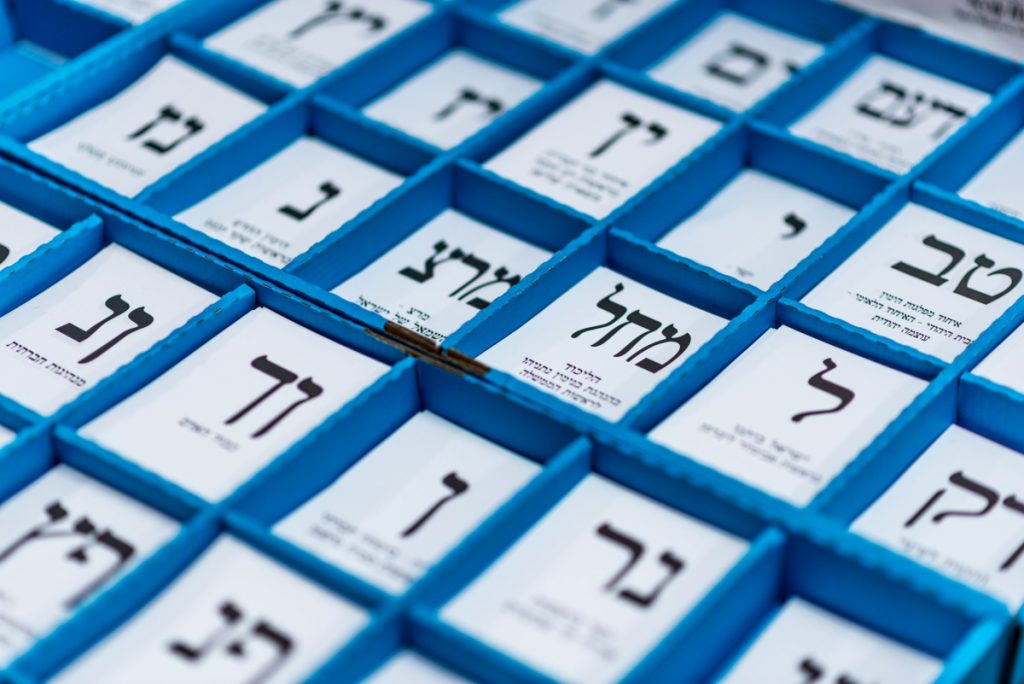Australia/Israel Review
Polls suggest yet another deadlocked election
Jul 1, 2022 | Michael Horowitz

As Israel braces for its fifth election since 2019, three separate TV polls that aired on June 21 showed that the two rival political blocs remain deadlocked, as they were in the previous four elections. However, all the polls showed the bloc of parties loyal to Opposition Leader Binyamin Netanyahu faring significantly better than it did in the 2021 elections.
The polls predicted that neither the current coalition nor Netanyahu’s right-religious bloc would receive a majority of 61 seats in the 120-member Knesset, assuming there are no changes in the constellation of parties and alliances in the coming months.
The surveys were aired a day after Prime Minister Naftali Bennett and Foreign Minister Yair Lapid announced that they would move to dissolve the Knesset, as multiple defections from parties in the ruling coalition rendered it unable to govern.
The Kan public broadcaster predicted Netanyahu’s bloc would win 60 of the Knesset’s 120 seats, while the coalition parties would receive 54 if an election were held today.
Channel 12 news predicted a 59 to 56 split, while Channel 13 news predicted 59 to 55. The remainder of the seats would go to the majority Arab Joint List, which doesn’t support either bloc.
In the March 2021 elections, Netanyahu’s bloc – Likud (30), Shas (8), United Torah Judaism (7) and Religious Zionism – mustered only 52 seats in total.
Tuesday’s polls all showed Likud as the top vote-getter, garnering 35-36 seats, compared to 20-22 seats for Lapid’s Yesh Atid (“There is a Future”), the next highest vote-getter.
Channel 12’s poll found the parties would win seats as follows: Likud, 35; Yesh Atid, 20; Blue and White, 9; Religious Zionism, 9; Shas, 8; United Torah Judaism, 7; Labor, 6; Joint List, 5; Yisrael Beytenu (“Israel our Home”, 5; Ra’am, 4; Yamina (“Rightward”), 4; Meretz, 4; New Hope, 4.
Channel 13’s poll gave Likud, 35; Yesh Atid, 22; Religious Zionism, 9; Shas, 8; United Torah Judaism, 7; Blue and White, 7; Joint List, 6; Labor, 5; Yisrael Beytenu, 5; Ra’am, 4; Yamina, 4; Meretz, 4; New Hope, 4.
And the Kan poll scored the parties like this: Likud, 36; Yesh Atid, 21; Blue and White, 9; Religious Zionism, 9; Shas, 8; United Torah Judaism, 7; Labor, 6; Joint List, 6; Yamina, 5; Yisrael Beytenu, 5; New Hope, 4, Ra’am 4. It showed Meretz falling below the Knesset threshold.
Such poll findings might prompt parties near the bottom of the tally to consider forming alliances in order to avoid falling below the electoral threshold of 3.25%.
Two of the polls found that most respondents prefer to go to elections rather than see an alternative government formed by Netanyahu in the current Knesset.
The Channel 12 poll found that 57% of respondents prefer elections to the 32% of those who want an alternative government with Netanyahu at the helm, while a poll aired by Kan found that 46% of respondents prefer the current course,while 37% support the establishment of a new government under the opposition leader.
According to Kan, 48% of respondents believe the opposition leader should be PM, while 31% answered they prefer Lapid.
Channel 12 found that Netanyahu was the preferred leader for prime minister when polled against Bennett, Lapid, and Defence Minister Gantz. 47% of respondents believed he was more suited to the job, while 23% supported Bennett, and 31% supported Lapid. Against Gantz, 46% of respondents supported Netanyahu as prime minister, while 26% preferred the Defence Minister.
The poll also ran a scenario of Bennett and Justice Minister Gideon Sa’ar running together on a joint electoral list, which found it would only make a difference of 1 seat, with Likud receiving 34 seats and a Yamina and New Hope partnership receiving 13.
If Yamina ran together with Yesh Atid, their list would receive 26 seats according to Channel 12 news, but New Hope would not pass the electoral threshold, thus awarding the Netanyahu bloc 60 seats.
Elections will likely be held toward the end of October, after the conclusion of the Jewish High Holidays.






